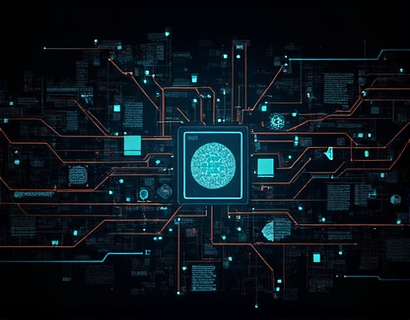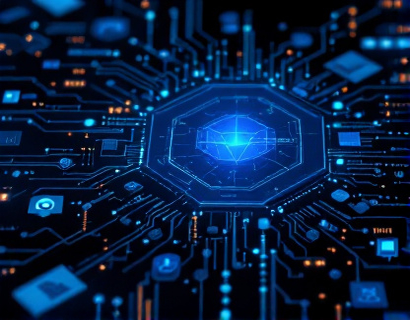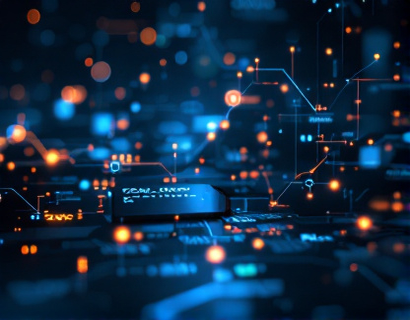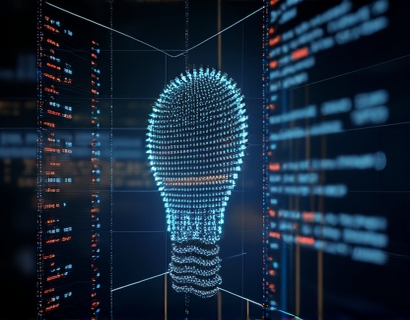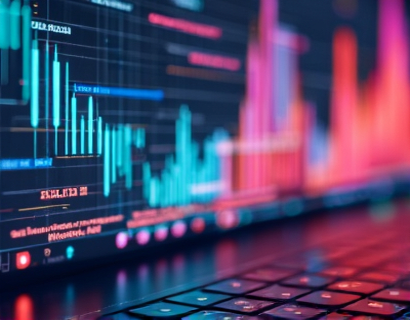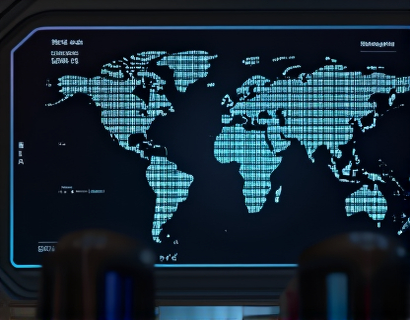Unlocking Enhanced Productivity in the Digital Age: The Synergy of AI and Cryptocurrency
The digital age has ushered in a new era of technological advancements, where artificial intelligence (AI) and cryptocurrency are at the forefront of transforming the way we work and interact with digital tools. This article delves into the profound impact of these technologies, exploring how their convergence is unlocking unprecedented levels of productivity and efficiency. For tech innovators and early adopters, this synergy represents a promising horizon, offering innovative solutions that streamline daily tasks and redefine workflows.
The integration of AI into various sectors has been nothing short of revolutionary. From healthcare to finance, and from education to manufacturing, AI is enhancing productivity by automating routine tasks, providing insights through data analysis, and enabling more informed decision-making. However, the true potential of AI is being fully realized when combined with cryptocurrency, a digital asset that operates on decentralized networks, ensuring transparency, security, and efficiency.
Cryptocurrency, particularly through blockchain technology, provides a robust framework for AI applications. Blockchain's inherent characteristics, such as immutability and decentralization, ensure that AI systems can operate with high levels of trust and reliability. This combination not only enhances the performance of AI-driven tools but also opens up new possibilities for decentralized applications (dApps) that can revolutionize industries by reducing reliance on centralized authorities.
Enhancing Workflow Efficiency with AI and Crypto
One of the most significant benefits of integrating AI with cryptocurrency is the enhancement of workflow efficiency. AI can automate repetitive and time-consuming tasks, allowing professionals to focus on higher-value activities. For instance, in project management, AI-powered tools can predict project timelines, allocate resources optimally, and monitor progress in real-time. When these tools are backed by cryptocurrency, they can operate on a decentralized network, ensuring that all stakeholders have transparent and tamper-proof access to project data.
Consider the case of smart contracts, a prime example of AI and cryptocurrency synergy. Smart contracts are self-executing contracts with the terms of the agreement directly written into code. They automatically enforce and execute contractual obligations when predefined conditions are met. This not only speeds up processes but also minimizes the risk of human error and fraud. For businesses, this means faster transactions, reduced administrative costs, and increased trust among parties.
AI-Driven Cryptocurrency Trading
The financial sector is another area where AI and cryptocurrency are making waves. AI algorithms can analyze vast amounts of market data, identify patterns, and make predictions with high accuracy. This capability is particularly valuable in cryptocurrency trading, where market volatility is high and opportunities for profit are abundant. AI-driven trading bots can execute trades at optimal times, manage risk, and adapt to changing market conditions, providing investors with a competitive edge.
Moreover, the use of cryptocurrency in trading eliminates the need for intermediaries, reducing transaction costs and increasing the speed of transactions. Blockchain technology ensures that all trades are recorded transparently and securely, enhancing trust and reliability in the market. For early adopters, this means access to a more efficient and transparent trading environment, where AI enhances decision-making and execution.
Decentralized Data Marketplaces
The convergence of AI and cryptocurrency is also transforming data management and monetization. Decentralized data marketplaces allow individuals and organizations to buy, sell, and share data securely and transparently. AI plays a crucial role in these marketplaces by processing and analyzing large datasets to provide valuable insights. These insights can be monetized by data providers, creating a new revenue stream.
Cryptocurrency ensures that transactions in these marketplaces are secure and anonymous, protecting the privacy of all parties involved. The use of smart contracts in these platforms automates the process of data sharing and payment, ensuring that all terms are met without the need for intermediaries. This not only reduces costs but also increases the efficiency and reliability of data transactions.
Enhancing Cybersecurity with AI and Crypto
Cybersecurity is a critical concern in the digital age, and the combination of AI and cryptocurrency offers robust solutions. AI can detect and respond to cyber threats in real-time, analyzing network traffic and system behaviors to identify anomalies and potential security breaches. Machine learning algorithms continuously learn from new threats, improving the system's ability to prevent future attacks.
Cryptocurrency, particularly through the use of blockchain, enhances cybersecurity by providing a secure and immutable ledger for transactions and data storage. This makes it extremely difficult for hackers to alter or tamper with data. Additionally, the decentralized nature of blockchain reduces the risk of single points of failure, making systems more resilient against cyber attacks. For organizations, this means a higher level of security and peace of mind when handling sensitive information.
Improving Supply Chain Management
Supply chain management is another sector that benefits significantly from the integration of AI and cryptocurrency. AI can optimize supply chain operations by predicting demand, managing inventory, and streamlining logistics. For example, AI algorithms can analyze historical sales data and market trends to forecast future demand, ensuring that inventory levels are optimized to meet customer needs without overstocking.
Cryptocurrency and blockchain technology enhance this process by providing a transparent and secure way to track goods throughout the supply chain. Each step, from production to delivery, can be recorded on a blockchain, ensuring that all parties have real-time access to accurate and tamper-proof information. This transparency reduces the risk of fraud and errors, improving overall efficiency and trust in the supply chain.
Facilitating Cross-Border Transactions
Cross-border transactions are often hindered by high fees, slow processing times, and regulatory complexities. The combination of AI and cryptocurrency addresses these challenges by providing a faster, cheaper, and more reliable way to conduct international transactions. AI can streamline the process by automating compliance checks, verifying identities, and ensuring that all regulatory requirements are met.
Cryptocurrency, with its borderless nature, eliminates the need for intermediaries such as banks, reducing transaction costs and speeds up the process. Blockchain technology ensures that all transactions are recorded securely and transparently, reducing the risk of fraud and disputes. For businesses engaged in international trade, this means more efficient and cost-effective cross-border transactions, facilitated by the synergy of AI and cryptocurrency.
Challenges and Considerations
While the potential of AI and cryptocurrency in enhancing productivity is vast, there are several challenges and considerations to keep in mind. One of the primary concerns is the regulatory landscape. As these technologies evolve, governments and regulatory bodies are still grappling with how to govern them effectively. Compliance with regulations is crucial to ensure that AI and cryptocurrency solutions are adopted widely and sustainably.
Another challenge is the technical complexity involved in integrating AI and cryptocurrency systems. Developers and organizations need to have a solid understanding of both technologies to implement them effectively. This may require significant investment in training and development. However, the long-term benefits far outweigh the initial challenges, as the synergy between AI and cryptocurrency can lead to groundbreaking innovations.
Conclusion
The integration of AI and cryptocurrency is poised to revolutionize the digital landscape, offering unprecedented levels of productivity and efficiency. From enhancing workflows and optimizing supply chains to facilitating secure cross-border transactions, the potential applications are vast. For tech innovators and early adopters, embracing this synergy can provide a competitive advantage and open up new opportunities in the digital age. As these technologies continue to evolve, the future of digital productivity looks brighter and more efficient than ever before.











